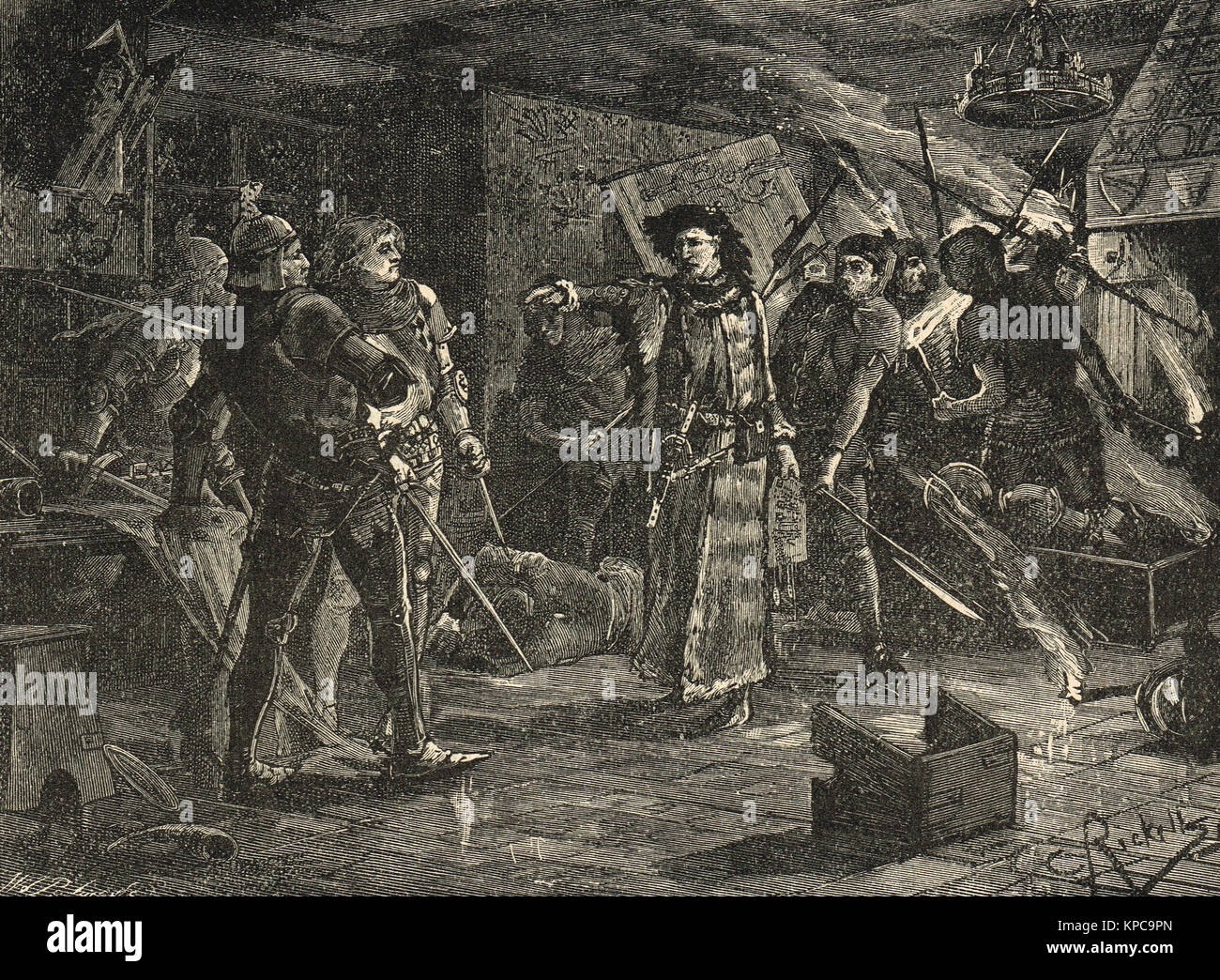The arrest of the conspirators, Epiphany rising, Cirencester, 1400

Image details
Contributor:
Historical Images Archive / Alamy Stock PhotoImage ID:
KPC9PNFile size:
22.2 MB (2.7 MB Compressed download)Releases:
Model - no | Property - noDo I need a release?Dimensions:
3253 x 2389 px | 27.5 x 20.2 cm | 10.8 x 8 inches | 300dpiDate taken:
1903More information:
This image could have imperfections as it’s either historical or reportage.
Illustration by Charles Ricketts (1866–1931) from a special edition history of England published in 1903. Info from wiki: The ringleaders of the conspiracy were John Montagu, 3rd Earl of Salisbury, John Holland, 1st Earl of Huntingdon (formerly Duke of Exeter) and half-brother to Richard II, Thomas Holland, 3rd Earl of Kent (formerly Duke of Surrey), and Thomas le Despenser, 4th Baron le Despencer (formerly Earl of Gloucester). Other members included Edward of Norwich, 1st Earl of Rutland (formerly Duke of Aumale), Ralph Lumley, 1st Baron Lumley, Sir Thomas Blount and Sir Bernard Brocas. They met on 17 December 1399 at the Abbey house in Westminster and plotted to capture the new King Henry IV while he was at Windsor for the feast of Epiphany. They hoped to seize the king during a tournament, kill him, and restore Richard II to the throne. However, Edward of Norwich allegedly betrayed the conspirators to King Henry, forewarned, Henry failed to appear at Windsor and began to raise an army in London. Kent and Salisbury arrived at the castle, but hearing that the king, forewarned, was no longer there, quickly left. The conspirators fled to the western counties and raised the standard of rebellion. While attempting to seize Cirencester, Lumley was beheaded in a short but violent skirmish by the townsfolk and Salisbury and Kent were captured. Held briefly in custody, they were abruptly beheaded without trial on 7 January 1400. Le Despencer was captured at Bristol by a mob and was also summarily beheaded on 13 January 1400. Huntingdon was captured at Pleshey and dealt with likewise on 16 January 1400. Blount escaped to Oxford, where he was hanged, drawn and quartered on 12 January 1400. Brocas was captured in Cirencester and beheaded at Tyburn. The rebellion also convinced Henry IV that a deposed, and alive King Richard was a very dangerous liability for him. The deposed monarch would come to his death 'by means unknown' in Pontefract Castle by 17 February 1400